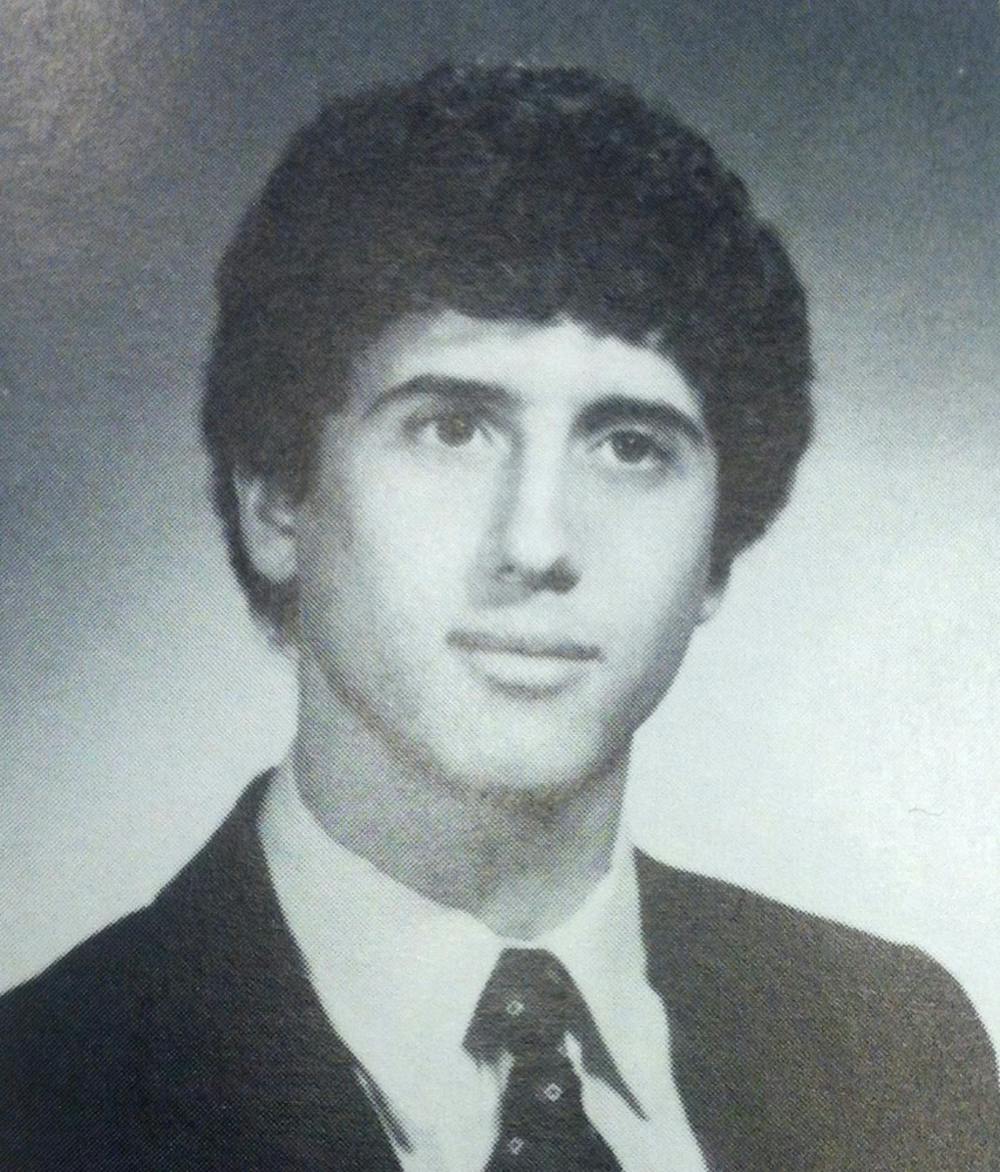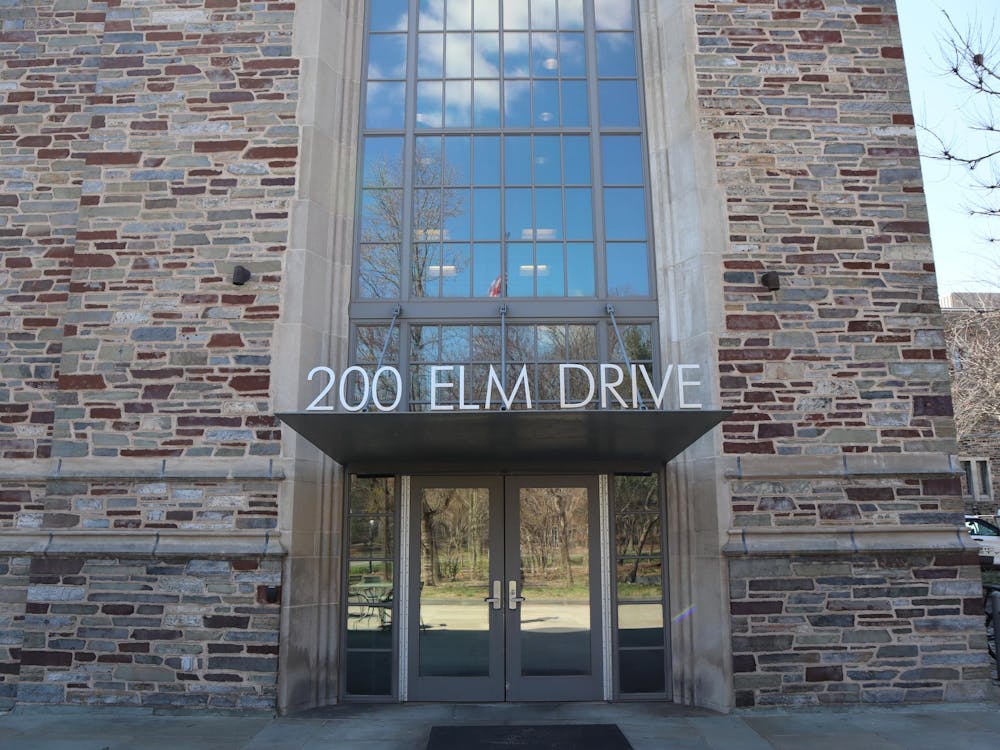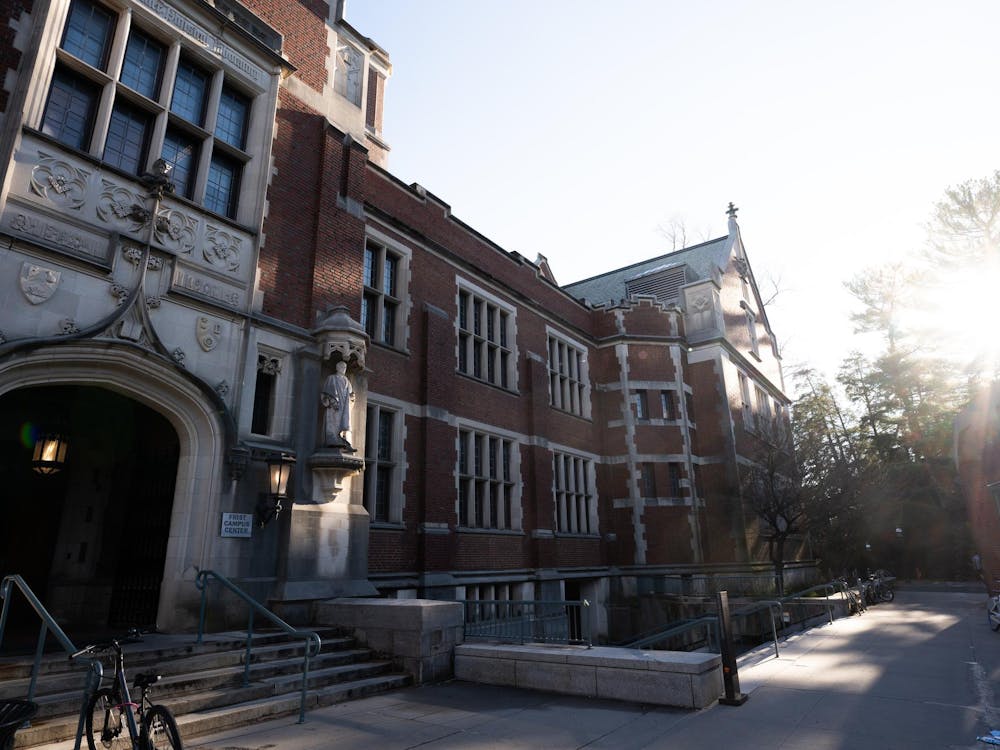Barton Gellman ’82 has always been a secret breaker.
As an undergraduate at Princeton, Gellman decried secrecy inNassau Hall in his first column as the chairman of The Daily Princetonian — a position roughly equivalent to what is now known as editor-in-chief.
“We've been far too tolerant, as well, of Nassau Hall’s idiosyncratic preference for secrecy and closed-door decisions on the most basic issues facing Princeton,” Gellman wrote in February 1981. “Far more than at most universities, Princeton officialdom likes to go about its business without the messy complications of public debate. A newspaper should not — must not — tolerate this.”
In the same column, he also revealed that student members of the Third World Center — now known as the Fields Center — had staged protests in the ‘Prince’ newsroom for years, complaining about what they perceived as skewed coverage, a fact that previous editors had decided not to publish.
A review of Gellman’s career, based on close to a dozen interviews with current and former colleagues, shows that not much has changed since his time at the ‘Prince.’ In fact, he has spent much of his life uncovering and spilling other people’s secrets, most recently those of National Security Agency contractor Edward Snowden. He is also currently working on a book on secrecy and government surveillance, a project he said he began before meeting Snowden.
Publishing what others mean to keep hidden has also earned him a number of criticisms. Even years before the Snowden stories, a former senior NSA official reportedly called him a “traitor” for his reporting.
“I am someone who tries to penetrate secret things. I’m someone who tries to understand and write about what powerful people do that they don’t want you to know about,” Gellman said in an interview last month. “I see my job as to help the public hold them accountable for what they do and how they do it. Do we approve of what’s being done, for us, to us, in our interests, or don’t we?“
Colleagues said that Gellman showed promise from his time at Princeton, where he graduated summa cum laude and went on to become a Rhodes Scholar. His senior thesis on George F. Kennan ’25, the father of the Cold War policy of containment, was published as a book only two years after his graduation.“He’s an extremely smart guy and has always been able to think about 10 steps ahead. Part of his intelligence is his ability to see the big picture, to see a pattern,” Washington Post reporter Joel Achenbach ’82, who was editorial chairman at the ‘Prince’ under Gellman, said. “That ability to see the story is something he had at a really young age.”
He also led the campus newspaper with a sense of humor.During the 1981 Yale-Harvard football game, Achenbach said, the ‘Prince’ editors went up to New Haven and distributed a fake issue of The Yale Daily News. The issue included a fake story about a drug probe of the two teams and caused an uproar in the crowd at the game, according to a story published by the Princeton Alumni Weekly.
“Bart not only orchestrated the whole thing; he also made sure we got news coverage for it, like in The New York Times,“ Achenbach said.
The Yale campus newspaper got back at him at the beginning of the 1982-83 school year, when Gellman had already left the University, distributing a fake issue of the ‘Prince’ on campus. One of the articles in the fake issue said that Gellman had plagiarized his senior thesis from a magazine he had allegedly found at a dentist’s office in Trenton.
Since then, Gellman has maintained ties with Princeton. He is currently a visiting lecturer and author-in-residence at the Wilson School, where he last taught WWS 384: Secrecy, Accountability and the National Security State in fall 2012.More than the secrecy beat
Gellman began his reporting career at The Washington Post, writing about the D.C. district courts. He extended his reporting overseas as a foreign correspondent in Jerusalem, covering the assassination of Israeli Prime Minister Yitzhak Rabin, and afterwards served as the Post’s diplomatic correspondent.
Gellman went on to garner significant attention for reporting on national security issues. He broke a number of stories related to 9/11 and the Iraq War and won the Pulitzer Prize in 2008 for a series on then-Vice President Dick Cheney with reporter Jo Becker. He then published a best-selling book on Cheney, called “Angler: the Cheney Vice Presidency.”
His contemporaries say he is a multifaceted journalist whose expertise extends into several fields.
“Bart’s written about national security and become an expert on secrecy, but he’s not a beat reporter on the spying industry. He’s looked at secrecy from a lot of different angles,” former Post Managing Editor Phil Bennett, who worked directly with Gellman, said.
Gellman said that even before he started working on national security stories, he began to develop his interest and knowledge about electronic security systems. He believed he had a professional need to keep his sources’ information confidential and secure. As he did more research on how to do this, he realized how hard it is for an ordinary citizen to truly keep information private.
“Honestly, it is a little like falling down a rabbit hole. Every time you think you’ve got all the gaps filled, you find out there’s another one,” Gellman said. “There has to be an element of political debate and regulation and legislation because there are some things that technology permits government and private industry to do that you just can’t defend against.”
“He’s always been someone who’s very concerned about encryption and cybersecurity and issues like that. He’s taken those precautions and learned that tradecraft, and I believe that’s helped him in doing [the Snowden] stories,” said Washington Post Assistant Managing Editor for Investigations Jeff Leen, who worked with Gellman on the Cheney series.
This reputation proved to be key in his future involvement with Snowden and his NSA files.
Snowden's secrets
Late last year, Gellman said, Laura Poitras, an independent documentary filmmaker who has experience reporting on surveillance, contacted him regarding certain confidential government documents.She had reached out to him because an anonymous informant had contacted her using advanced communication means that Gellman had taught Poitras how to use. The source claimed to have proof that the NSA, an intelligence agency within the Department of Defense, was essentially spying on American citizens.
Gellman’s first action upon receiving the documents, he said, was to present them to government officials and explicitly ask them if they were authentic.
“I’ve had plenty of nut cases come to me over the years. I’ve had people who are naive and thought they had a big scoop. I’ve had people who use reasonably authentic-looking, reasonably sophisticated fakes in order to get a story that they wanted,” Gellman explained. “My first order of business was to figure out, ‘Are these documents real?’”
Once Gellman had confirmed that the documents involved in this summer’s NSA stories were in fact authentic, he began communicating with Snowden through Poitras. He then set up a direct channel with Snowden, who sent him additional documents. He declined to share details of their communication method and frequency, due to a confidential source agreement.
The knowledge he gained from his work investigating Cheney’s vice presidency led him to believe that these documents were significant and groundbreaking, he said.
With this information in hand, Gellman began breaking stories about the NSA with the Post, a newspaper he had left in 2010 but through which he has been publishing his stories on a freelance basis.
One of those pieces, published this June, was a collaboration with Poitras on the NSA’s PRISM program in which Gellman named nine major Internet companies that have released large amounts of private consumer data to the U.S. government.
The government had verified the documents but requested that he withhold the names of these companies, which included giants such as Apple and Google. Gellman said he disregarded the advice because he did not consider that protecting these companies was a legitimate reason to prevent their disclosure. In the end, the Post published the names.
“I’m not against big data; I’m against the sort of promiscuous use of big data,” he said.Journalist, advocate, traitor?
Unsurprisingly, Gellman has faced backlash from the government and accusation from critics who have found his actions to be unpatriotic and overreaching.
Stewart Baker, a former assistant secretary for Policy at the Department of Homeland Security, corresponded with Gellman via email and publicly questioned his journalistic integrity.
“Maybe it’s just me, but I don't think anyone can read [Gellman’s response to Baker] without wondering whether Bart Gellman has slipped from journalist to advocate,” Baker wrote in a blog post. “Put another way, it seemed better to hold the truth back until it could be used to sandbag the adversary.”
In a similar vein, Gellman was criticized in 2008 by Mike Levin, a former chief of information security at the NSA, for releasing national security secrets.
“We have a special word for people who provide information to the enemy of their country. What word do we use? Traitor,” Levin said in “Secrecy,” a documentary about government secrecy produced by two Harvard professors.
In a following sequence in the documentary, Gellman responded to Levin, called himself a patriot and said that allowing the government, and the government alone, to decide what the public should know is “profoundly un-American.”In regards to the Snowden stories, Gellman noted that he regularly consulted with the government while writing all his stories, making sure to remove or rewrite any information that he was convinced was “sensitive or potentially damaging” to national security.
“Democracy isn’t free. John F. Kennedy didn’t say, ‘We will pay no price; we will bear no burden to secure the blessings of liberty.’ There’s always a trade-off,” he said.
Gellman’s colleagues have also come to his defense and called his actions a service to the people.
“In our system, giving people the information that they need to be self-governing is a supremely patriotic thing to do in my view, and I think he does that as well as anybody,” Bennett said. “If Edward Snowden had called me and said, ‘Hey can you recommend a reporter who would be ideal to leak this stuff to?’, I would have said Bart.”








